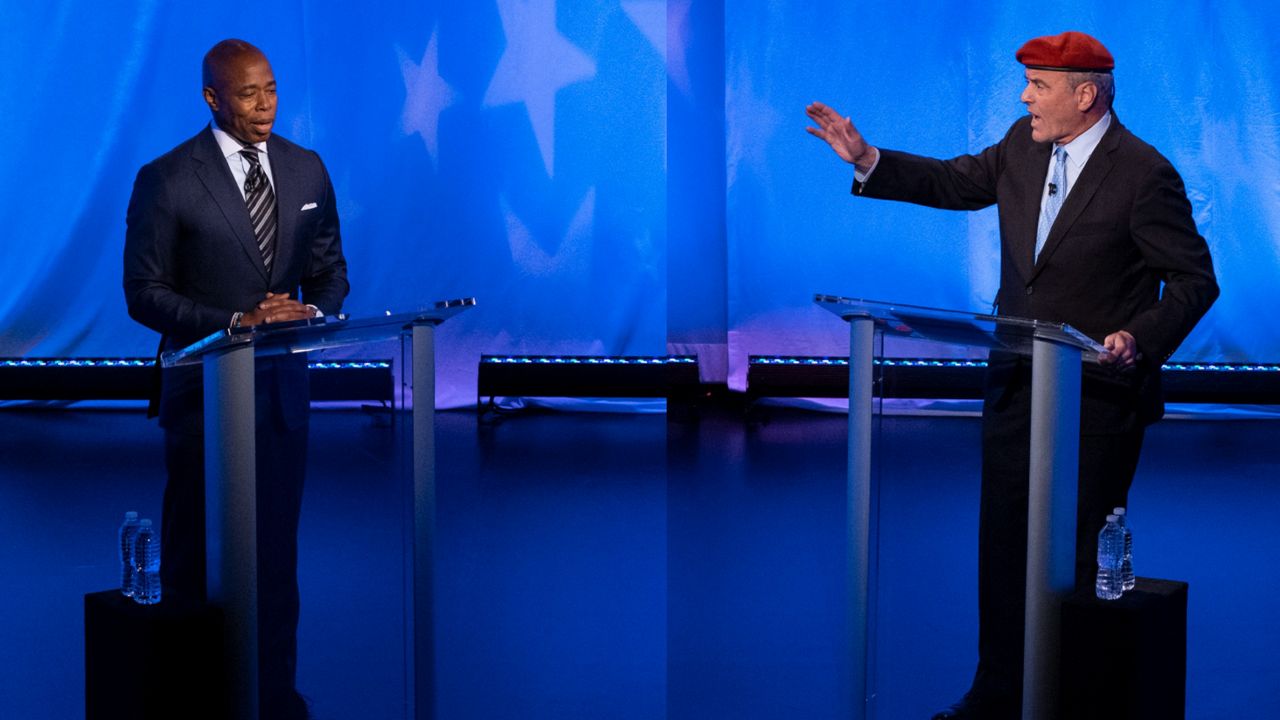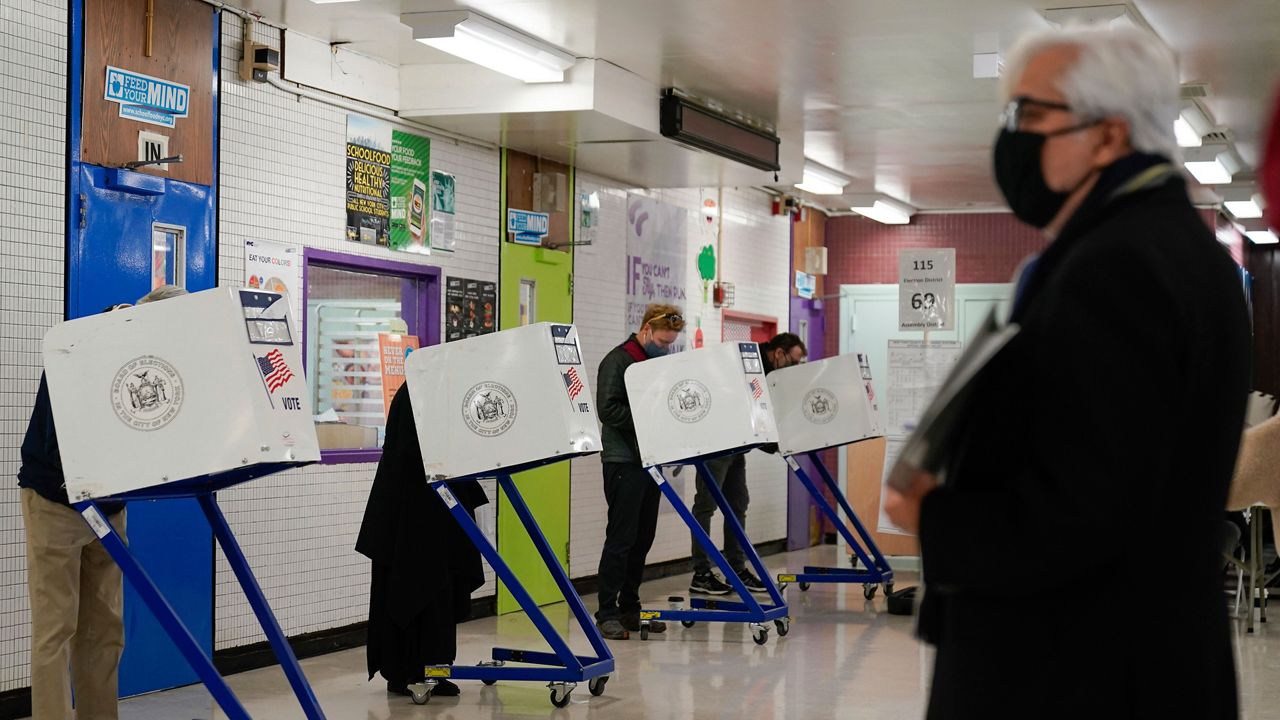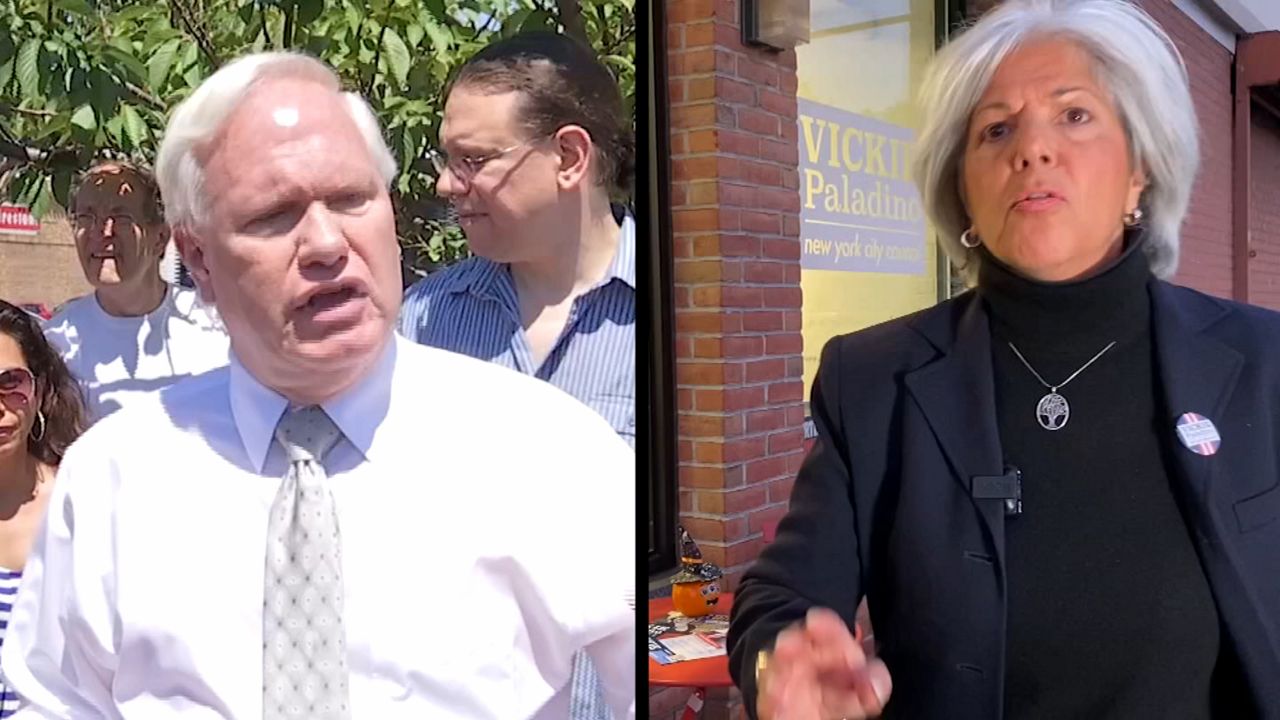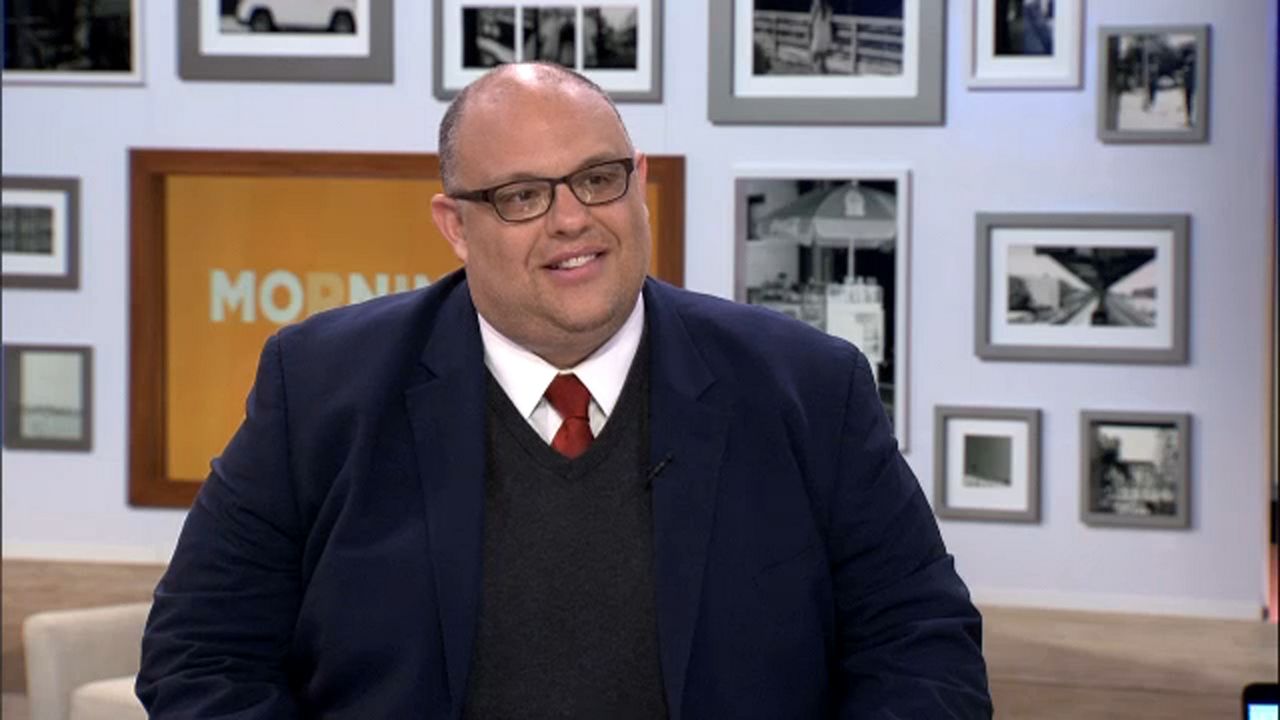The race to be New York City’s next mayor is entering the final stretch, with early voting underway, and Election Day on Tuesday, Nov. 2.
Brooklyn Borough President Eric Adams, the Democratic nominee, enjoys a significant built-in political advantage over radio personality and Guardian Angels founder Curtis Sliwa, the Republican nominee: About 3.7 million of the city’s registered voters are Democrats, compared with about 566,000 Republicans and 1.08 million independents, according to the state Board of Elections.
Adams has repeatedly belittled Sliwa’s challenge — “He’s not under my skin, he’s not on my skin, he’s not near my skin,” he said at a recent get-out-the-vote rally in Brooklyn — but the two have clashed on many issues that city residents are focusing on.
Here is a look at some of the key issues the two have addressed, and where they agree and disagree.
Education
Gifted &Talented Program
Both candidates support expanding accelerated learning programs, saying they disagree with Mayor Bill de Blasio’s decision to phase out the Gifted and Talented program at the end of the current school year. Adams, who has spoken often about growing up with an undiagnosed learning disability and the large proportion of criminal offenders with learning difficulties, has also emphasized increasing funding to programs for students who “learn differently.”
School vaccine mandates
Adams has said he supports a vaccine mandate for public school students, putting him at odds with de Blasio, who has repeatedly said he opposes such a measure. Sliwa is also opposed to a vaccine mandate for all children in public schools.
Law enforcement
Rikers Island
The situation on the island jail complex has become a "humanitarian crisis," according to some elected officials, with crowded cells, detainees in full control of some areas and continuing staffing problems. Adams supports a current city plan to close the jail complex by 2026, replacing it with borough-based jails. Sliwa opposes closing Rikers, and has promised to hire 2,000 more correction officers. (A federal monitor for Rikers has reported that the complex does not need more staff, but better management and coordination of existing staff.) Sliwa has also said he will live in the warden’s house on Rikers to personally supervise the corrections officers.
Policing
Adams, a retired police captain, has called for the return of limited stop-and-frisk efforts — a tactic that saw disproportionate use against Black and Latino young men — and reinstating a plainclothes police unit that was disbanded last year for consistent excessive force. Sliwa supports a return to stop-and-frisk, and hiring 3,000 more police officers by instituting property taxes from exempt institutions like Madison Square Garden.
Both candidates have called for deeper investment in mental health services, but diverge on how much power police should have in detaining people with mental health issues. Sliwa supports changing a state law to allow police to involuntarily detain mentally ill people, even when they do not pose an immediate danger to themselves or others. Adams says he does not want to change the law and believes improving permanent housing options for unhoused people would be more effective.
Transportation and infrastructure
Bike lanes
Adams has proposed adding hundreds of miles of bike lanes to the city, and encouraging city residents to use them more by providing incentives to commute on two wheels. Sliwa, however, believes the city should remove bike lanes that are not being used.
Congestion pricing
Adams supports the effort to charge drivers who use Manhattan streets below 60th Street, but called for waivers for people in medical need. Sliwa wants the plan to go to a ballot referendum, and has said it would “crush” middle class drivers.
Environment and Resiliency
Flooding
Neither Sliwa nor Adams has made climate issues central to their campaign, though both issued expanded resiliency plans in the wake of flash flooding in early September caused by record rains from the remnants of Hurricane Ida, which killed 13 people.
Adams has called for a targeted early warning system, combined with high-resolution forecasting, to warn residents of impending flash flooding. Sliwa characterized that approach as allowing homes to continue to flood, and called for increased cleaning of sewer grates to prevent water backup and building sea walls in areas prone to coastal flooding.
Resiliency
Both candidates say they plan to encourage retro-fitting of buildings to expand roof and street-level gardens to catch rain. Sliwa’s platform does not address energy efficiency, while Adams has said he intends to help make the city a center of green technology innovation, and create a pipeline from city schools to green tech jobs.
The candidates disagree on how to deal with illegal basement units, where 11 of the 13 victims of the Ida floods died: Adams wants to legalize the units, despite failed city efforts to begin a pilot program to do that, while Sliwa opposes legalization. Adams has also called for targeted, voluntary buyouts of some homes in flood-prone areas.
Economy
Food and restaurants
Both Adams and Sliwa want to allow outdoor dining structures to stay, and for the city to increase the number of permits for street car and food truck vendors. Sliwa, unlike Adams, supports increased police control of street food vendors and said in the recent mayoral debate that he would “downsize” outdoor dining sheds to return space to “bicyclists, the vehicles and the pedestrians.”
Bringing back workers
Both candidates believe that public safety, especially on subways and buses, is key to getting workers to return to the office, as is controlling the population of unhoused people with mental illnesses. “You can’t have an economic recovery,” Sliwa said recently, “if people are afraid to come to work.” Adams has cited increased investment in child care as another strategy to making residents more comfortable returning to work, as well as making the city “friendlier” to high-tech industries like biotechnology, cyber-security and sustainable energy.
Health
Vaccine mandates
All city workers must be vaccinated by Oct. 29 in order to continue receiving a paycheck, with the exception of Department of Correction workers. Adams has largely supported vaccine mandates for city workers, though he has suggested he would have pre-negotiated the mandates with unions before announcing them. De Blasio’s strategy has been to announce the mandates several weeks before they go into effect, and then begin negotiations with unions. Sliwa, who is vaccinated against COVID-19, has consistently opposed the mandates, saying they will lead to decreased staffing of city posts, particularly in the police and fire departments. Staffing shortages in schools, where personnel must be vaccines, have forced some students to go without mandated services, though city officials say they are not seeing shortages in public hospitals, another area where vaccines are required. City data shows that 84% of municipal workers have received at least one COVID-19 vaccine dose.
Remote work
De Blasio has required nearly all city workers to return to their offices, saying the workers need to be there in person for the city to efficiently provide certain services. Both Adams and Sliwa support keeping at least some city jobs remote, with Sliwa fully opposing a mandated return to the office.
Housing
Homelessness
Both Sliwa and Adams view addressing the city’s growing homeless population as a key to the economic recovery. Adams has touted a plan to turn unused hotels across the boroughs — 25,000 rooms total — into permanent affordable and supportive housing, including for currently unhoused people. Sliwa has a blast-from-the-past approach: send unhoused people to a reopened Camp LaGuardia, a 1,000-acre upstate complex opened by its namesake, Mayor Fiorello LaGuardia, as what he called a “human repair shop.”
Affordable housing
Both candidates support turning unused office space into affordable housing, and overhauling the city’s property tax code.








